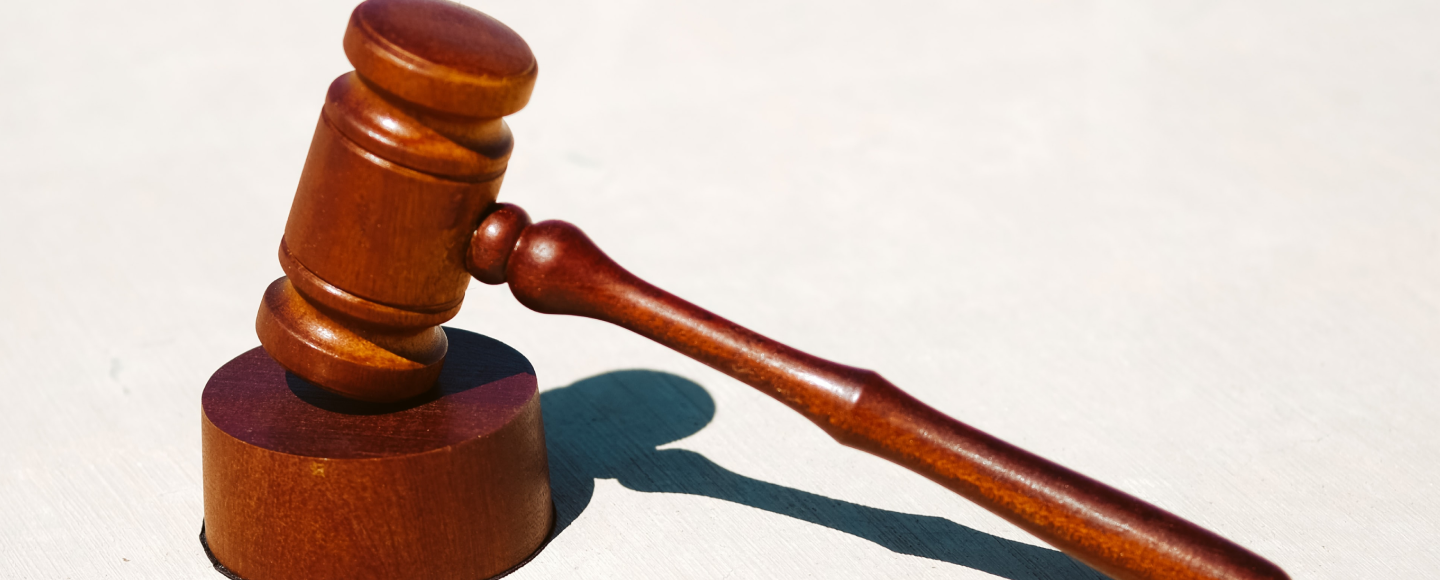I was a public defender in DC for a number of years before my family and I moved to North Carolina and I began practicing criminal law here in NC. I was tuned into what I believed were real, systemic problems in the criminal justice system in DC during my time there. Wildly disproportionate prosecution of minorities, judges with unshakable biases against my clients, dirty prosecutors, and other deeply rooted problems in the system that purported to dole out justice there in the nation’s capital.
But little did I know how good I had it — or really how good my clients had it — until I first set foot in a North Carolina Criminal District Court. I realize now that those were truly the good old days in the trajectory of my own career, when I practiced in a broken system whose proceedings were at least recorded.
You may want to have a seat before I explain what I mean, if you’re new to the criminal justice system in the great state of North Carolina.
So here it is. Here is the first great and tragic lesson that I learned when I first began defending criminal cases in North Carolina: The criminal District Courts of North Carolina are courts of no record. I put that in both bold and italics because I want to be clear that I’ve typed those words correctly. If you are charged with a crime in North Carolina, your case will typically begin (and often end) in District Court. If you’re charged with a DWI, misdemeanor drug offense, larceny, misdemeanor assault, or any other misdemeanor, and you are seeking a trial (because you know, this is America, the Constitution, innocent until proven guilty, yada yada), that trial will take place in District Court before a District Court Judge. And none of that proceeding will be recorded.
In both Durham and Wake Counties, extravagant new court buildings have been erected in the very recent past (the $119 million Durham County Justice Center opened in 2013, and the $184 million Wake County Justice Center opened the same year). No expense was spared. The Wake County facility was described as “an expanse of marble, steel, and light.” The Durham County Justice Center invokes similar sentiments, with its green roof and LEED Gold rating.
$119 Million Durham County Justice Center
$184 Million Wake County Justice Center
Let me back up for a minute as you take in the grandeur of these state-of-the-art modern day justice-machines.
I started taking criminal cases to trial in North Carolina as soon as I opened up my practice, because I’m a trial lawyer. As far as I’m concerned, if my client is charged with a crime, we’re at war and I am the sole line of defense against, at worst, a lengthy prison sentence and the catastrophic collateral consequences that follow, and at best, a permanent criminal record that can have its own devastating consequences on an individual and his or her family.
The other side also treats the proceedings in a criminal trial as a war, often due to a deeply rooted misconception of the role of a prosecutor in the criminal justice system, but I’ll save that for another day. Unfortunately, our judges also often mistakenly believe that they are allied forces with the prosecution in the same war against the accused — who, by the way, is quite more often than you might think actually innocent.
So you would think, given the stakes, that both sides would have a vested interest in producing a detailed record of these weighty proceedings. But as it turns out, only one side of this lopsided equation has an interest in recording what happens, and that would be the accused.
In one of my first trials in North Carolina, I watched a cop perjure himself over, and over, and over again. And then again in my next trial. In the words of one Illinois judge, presiding over a routine drug case last year in which video evidence was introduced by the defense, “All officers lied on the stand today. […] So there’s strong evidence it was conspiracy to lie in this case, for everyone to come up with the same lie. […] Many, many, many, many times they all lied.”
Now, I was already used to seeing cops lie before my southward move — that was standard. But that the point at which I realized how catastrophically, how tragically flawed the very concept of a “court of no record” is. There is no recourse when cops lie (which I believe they are formally trained to do), and there is no recourse when judges shamelessly disregard the Constitution. All the players are protected by the cloak of a recordless proceeding.
I asked around a bit, and the general consensus among judges and prosecutors was that the State simply didn’t want to spend the money on recording equipment and/or court reporters (despite the colossal expense of the facilities pictured above, in which no other expense was spared — including surveillance cameras in each courtroom, just in case a visitor makes a mark on a courtroom bench and the State needs to make an ID, which actually happened).
“That’s what Superior Court is for,” they would all chant in unison, as if rehearsed. But tell that to my clients who can’t afford the time or expense of relitigating their cases a second time in a higher court, even though clear issues of law should be settled in their favor at the first review by a judicial official.
So I figured I’d just fix the problem with some old fashioned DIY ingenuity. My next step was to purchase a small digital recording device to carry in my court bag. A dedicated device with a battery long enough to last a year and the storage capacity to record for a thousand hours, so I knew that I could rely on it in court every day. My plan: simply ask the permission of the court to record prior to the beginning of each proceeding.
But, to add to my ongoing shock, every single time I asked the permission of the Court to record a proceeding, the State objected, and the Court denied my request.
Let that sink in for a second.
In one instance, the District Court judge noted the unfairness of one side having a recording of a proceeding while the other did not. I offered a simple solution, which was that I would provide a digital copy of the proceeding to the prosecutor before the close of business on the same day of the proceeding, by email. The Court’s response? Request denied with no further explanation.
I found, again and again, intense resistance to the mere suggestion of recorded proceedings in North Carolina District Courts. Years later, I have yet to successfully record a proceeding in a North Carolina District courtroom with my own technology. Which begs the question of what it is, exactly, that both prosecutors and judges in this state have to hide. And I believe the answer is clear: our cops have become a little too comfortable twisting the truth under oath, and our judges have become a little too comfortable disregarding the law in favor of convicting those accused of crimes. And if we started recording the proceedings it would bring the entire game crumbling down. So we are left with a Court of No Record, and systemic injustices go on unrecorded every day.
★★★
Criminal defense attorney Ben Hiltzheimer is a defense attorney in Durham, North Carolina, who represents individuals charged with DWI and the full spectrum of misdemeanors and felonies. Contact us for a free, confidential consultation and case evaluation at (919) 899-9404.







